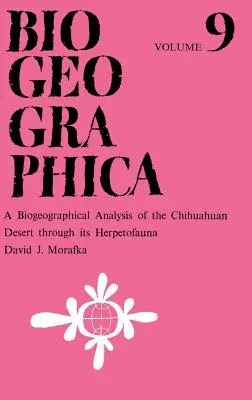D J Morafka
(Author)A Biogeographical Analysis of the Chihuahuan Desert Through Its HerpetofaunaHardcover, 31 March 1977

Qty
1
Turbo
Ships in 2 - 3 days
In Stock
Free Delivery
Cash on Delivery
15 Days
Free Returns
Secure Checkout

Part of Series
Biogeographica
Part of Series
Monographiae Biologicae
Print Length
321 pages
Language
English
Publisher
Springer
Date Published
31 Mar 1977
ISBN-10
9061932106
ISBN-13
9789061932109
Description
Product Details
Author:
Book Format:
Hardcover
Country of Origin:
US
Date Published:
31 March 1977
Dimensions:
23.39 x
15.6 x
1.91 cm
Genre:
Ecology
ISBN-10:
9061932106
ISBN-13:
9789061932109
Language:
English
Location:
Dordrecht
Pages:
321
Publisher:
Weight:
630.49 gm